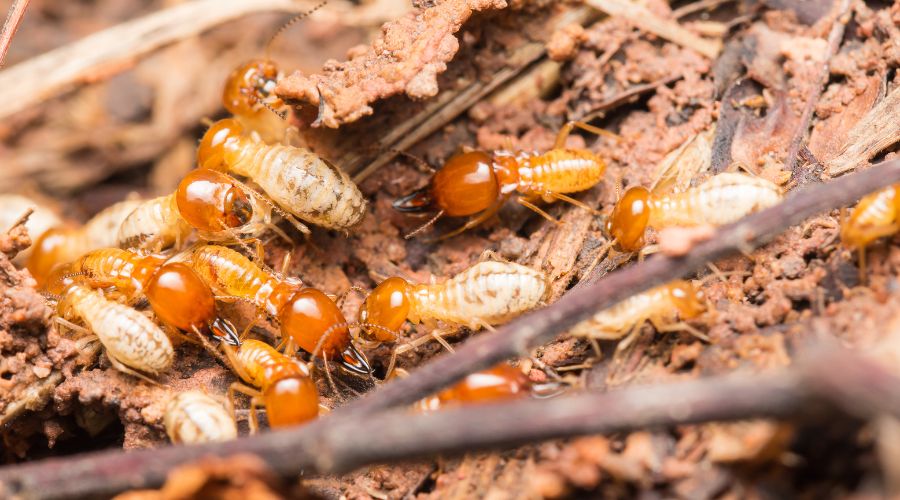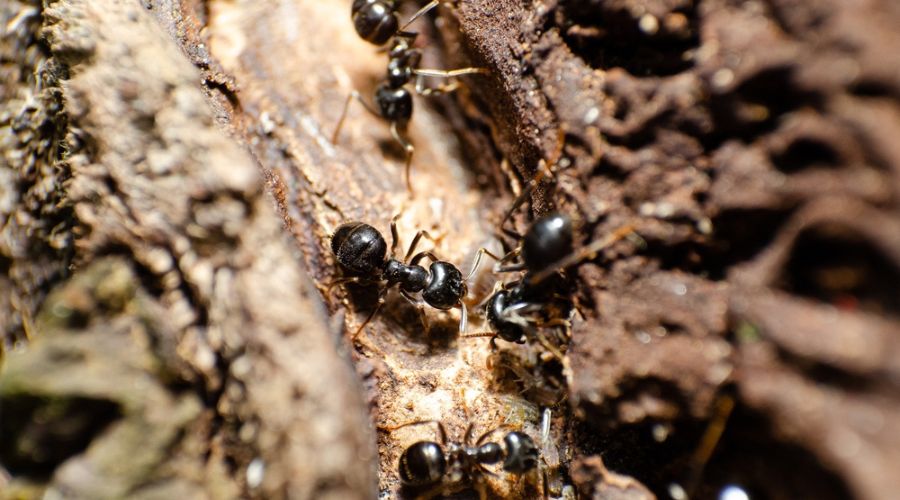Wood damage in your home usually indicates damage from pests. However, it’s not always easy to determine whether the wood damage comes from carpenter ants or termites. Learning the signs and symptoms of carpenter ants vs. termites in San Antonio can help you decide which type of infestation you have. Find out how to tell them apart in the article, including how to get rid of each pest type.
What Are Carpenter Ants?
Carpenter ants are reddish black ants that build nests in and around wood. The carpenter ant is the largest known ant species in America. However, they’re typically only between 6-12 mm in size. A carpenter ant has powerful mandibles, which allow them to break apart wood. They frequently use mandibles to create tunnels through your home’s wood. Carpenter ants are attracted to moist wood because it’s easier for them to tunnel through.
What Are Termites?
Termites are tiny pale pests with antennae and short legs. Unlike carpenter ants, termites don’t have distinct waists or bent antennae. Termites destroy wood 24 hours a day by continually biting off tiny pieces of the wood. Large groups of termites can quickly consume all the wood in your home’s door, wall, or important structural part. Termites are one of the most expensive pests to cause damage.
Carpenter Ants Vs. Termites: Damages Caused
Both carpenter ants and termites are capable of causing expensive damage. However, carpenter ants are slower at damaging your home’s wood, and it may take months or years to accumulate enough damage for you to notice. Termites, on the other hand, can cause more expensive damages in a shorter period of time.
Carpenter ants are also more organized and use smooth tunnels, meaning it may be harder to identify holes or tunnels in the wood. Termites quickly consume as much wood as possible, leading to more wood dust and debris. As a result, a termite gallery is rougher and messier.
Carpenter Ants vs. Termites: Signs of an Infestation

Termite damage is messier and often easier to spot than carpenter ant damage. However, you’re less likely to identify actual termites in your home.
Signs of a Termite Problem
You may notice the following signs if you have a termite problem:
- Discolored drywall spots on your walls
- Water damage spots on your walls
- Small holes in the drywall
- Hollow wood sounds when you knock on the walls
- Loosening tiles in the kitchen or bathroom
If you have a carpenter ant infestation, you’ll often notice them coming in or out of your home.
Signs of a Carpenter Ant Problem
You may notice the following signs if you have a carpenter ant problem:
- The appearance of a few larger black or red ants in your home
- Wood shaving piles around your house
- Ant trails going through your house
- Ant trails leading from the yard indoors
- Ant droppings, which are soft and woody
How To Get Rid of Carpenter Ants and Termites

Distinguishing the difference between carpenter ants vs. termites in San Antonio helps you better understand the damage you’re facing. It also allows you to determine how much time you have to call a professional. Romney Pest Control is your best choice when you need professional carpenter ant or termite control.
We have proven techniques for handling wood-destroying insects (WDI) like carpenter ants and termites. Contact Romney Pest Control today for a free quote on handling all your carpenter ant or termite problems.




